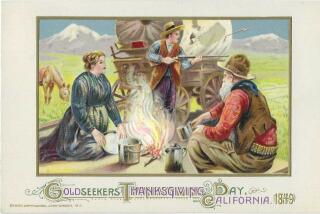Thanks Be That Mrs. Hale Talked Turkey to Lincoln
- Share via
The native wild turkey is so fast on its feet that it only makes sense that early men on this continent domesticated it so they could catch it more easily when they had a yen to roast this noble bird. I’ve heard the wild turkey can attain a running speed of at least 20 m.p.h.
Even those modern people who race around Balboa Island in their running shoes are no match for the wild turkey. Imagine the pitiful disadvantage those early Indians, who’d never heard of Adidas, had against the wild turkey.
I understand the turkey was penned and tamed by the Mayas of Mexico some few centuries after corn was developed about 5000 BC in central Mexico and became a staple on this continent. The potato also made its debut sometime in this time frame. My memory is foggy about just when. After all, that was a long time ago to remember something when you weren’t there.
At any rate, it’s easy to see those Indians had it pretty good in the culinary department a few thousand years ago. Roast turkey, corn bread and mashed potatoes is a meal not to be despised, even by modern standards.
No Record of Feast
There is no record that I know of that they made a Thanksgiving feast of it. In fact, there is no record that the Pilgrims in the autumn of 1621 ate turkey, corn bread and mashed potatoes at that first American Thanksgiving. They probably couldn’t run fast enough, what with tripping over the buckles on their shoes, to catch a turkey, and those trumpet-shaped barrels on their rifles couldn’t have been much good either. It’s no wonder they named them blunder busses.
Historians admit the Pilgrims held some kind of a three-day feast, and they “might after a more speciall (sic) manner rioyce together.” It wasn’t a religious feast, however. It was a kind of three-day picnic where the Pilgrims and the Indians joined in outdoor games. (Possibly to improve their running after turkeys lurking in the woods, and quite likely known as turkey-lurkies.)
The Pilgrims had to content themselves with stewed eels, waterfowl, corn, mussels, clams and venison, according to those historians who know about such matters. (I certainly don’t; I’m a Thanksgiving turkey man myself, and I think it’s pretty shabby of those historians not to mention turkey on the menu. After all, it is a pretty little story that the Pilgrims ate turkey. What harm is there in mentioning it? All right, I’ll mention it, even though it isn’t true.)
The Pilgrims feasted on wild turkey. That sounds lots nicer than stewed eels. I can’t get worked up over eels on my table.
It was a long, long time before any of our ancestors thought of having an annual Thanksgiving Day. In fact, it wasn’t until 242 years after the Pilgrims’ first autumn in the New World that Mrs. Sarah J. Hale, editor of Godey’s Lady’s Book, got the notion that it would be good for the ladies to have something really important to do in the kitchen on the last Thursday in November.
I’ve no idea why Mrs. Hale chose that date. Perhaps she thought the ladies had grown soft in the cooking department after a long summer’s hiatus and needed to brush up on their cooking skills to practice up for a big Christmas dinner a month later.
Obviously, Mrs. Hale was a persuasive women, and when she got an idea that something must be done, she refused to take no for an answer. She confronted President Abraham Lincoln with her idea, and the poor man, who had the Civil War on his mind and didn’t care to start another one with a lady editor, knuckled under. In 1863, he proclaimed Mrs. Hale’s last Thursday in November as a day of Thanksgiving.
By then we Americans had grown tired of chasing after wild turkeys and had domesticated them. Roast turkey with all the fixings became the national dinner on Mrs. Hale’s day. Apparently, the good lady editor had told Mr. Lincoln that turkey was what everybody should eat and he sent Mrs. Lincoln into the kitchen to do her duty as the First Lady.
Like any good editor, Mrs. Hale knew what her public wanted, and stewed eels, no matter how historically authentic, were not included, thank goodness.
More to Read
Sign up for The Wild
We’ll help you find the best places to hike, bike and run, as well as the perfect silent spots for meditation and yoga.
You may occasionally receive promotional content from the Los Angeles Times.






